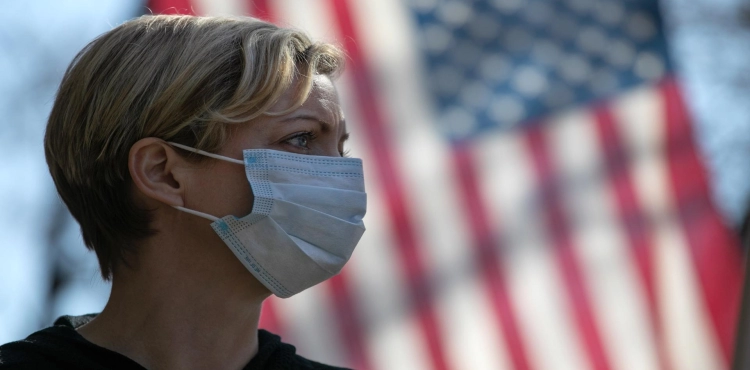The Covid-19 epidemic has spread sharply and is likely to inflict further damage on the US economy, and thus the country will need years to recover and return to what it was before the pandemic.
Even with promising news of a successful vaccine, it is unlikely to be widely distributed several months ago.
The number of daily infections with the Coronavirus in the United States has reached new records, which have exceeded 150,000, prompting the authorities in many regions to impose new restrictions.
"Covid continues to determine the course of the economy," said economist Diane Swonk of Grant Thornton in a report.
"The current increase in the number of injuries is much more worrying ... (and) it is expected to further impede economic activity," she added.
Authorities say an increasing number of infections are from small private gatherings.
Suonk urged Americans to "buy a small turkey" to celebrate Thanksgiving, an occasion when American families traditionally gather in large numbers.
For their part, the authorities in Chicago called on residents to stay at home, while in New York and Minnesota, establishments that sell alcohol are supposed to close at ten in the evening.
During the summer, the world´s largest economy showed promising signs of recovering from the worst recession that has hit the country since the Great Depression, but it may face a new setback, especially with the absence of a new stimulus package from Congress.
"We are starting to hear from economists that they are considering lowering GDP forecasts due to COVID-19," said Marys Ugg of Tower Bridge Advisors, a financial consultancy.
While the boom in home and auto sales was a bright spot in the economy alongside the recovery in the manufacturing sector, consumers are concerned about the sudden rise in the number of infections. One measure of consumer confidence declined in November for the first time since July.
The new wave of infections comes in the midst of a sharp political transition: Joe Biden won the November 3 election, blocking President Donald Trump´s bid for a second term, even as Trump continues to veto the results.
The Democrats retain their majority in the House, but it will not be known whether they will be able to wrest the Senate majority out of Republicans until early January.
This uncertainty has dampened hopes for a swift approval of a massive new aid package to support struggling families and businesses, as well as governments and local authorities struggling with budgetary pressures.
In March, Congress approved spending-related bills to tackle the pandemic that have been credited with boosting the economy, but many of the $ 2.2 trillion Cares provisions have expired.
And with at least 11 million Americans still unemployed, Republicans and Democrats remain divided over the structure and size of the next package.
Sowonk explained that even a "lean" stimulus package worth a trillion dollars could return activity to pre-crisis levels by mid-2021, but warned that "the employment rate will not reach its previous peak until late 2023."
Fed Vice Chairman Randall Quarles said Tuesday that he does not expect the economy to recover until 2022 or early 2023.
Consumers need to restore confidence in the economy in order to return to normal spending patterns, such as going to the movies, eating out or going on vacation.
Many observers fear that the economic recovery will not follow the usual pattern of a quick recovery or a steady recovery, but at a slower pace. Alternatively, recovery may occur in two separate lines that do not include all of those affected.
The unemployment rate in the United States fell to 6.9 percent in October, after reaching a peak of 14.7 percent.
But a third of the unemployed have remained so for more than six months.
This worries economists, because the longer a person is without a job, the more difficult it is to find a job.
Central Bank President Jerome Powell explained that in many cases, women have been forced to leave work and "not voluntarily" while students do not get the education they should be getting.
"We will not return to the economy itself," he added, noting that the new economy will depend more on technology.
"I fear that will make it more difficult than it was for many workers," he said, especially those with low incomes who are likely to be women and minorities.












